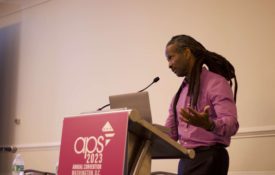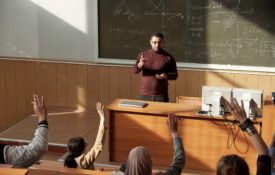-
Our Brains May Process Silence and Sounds the Same Way
Can you hear the sound of silence? It’s a question that may seem better suited to a philosophy class (or a Simon & Garfunkel concert) than a science lab, but a new study published today Visit Page
-
How Money Helps to Build Brain Power
We know that children who grow up poor are much more at risk for problems later on, from mental and physical health issues to lower education levels and less income as adults. It’s one of Visit Page
-

Carl Hart on Clinicians’ Bias Toward Drug Use
Podcast featuring Carl Hart, a neuroscientist at Columbia University who has studied the behavioral and neuropharmacological effects of psychoactive drugs in humans. His lab attempts to understand factors that mediate drug use, to develop effective treatments, and to translate that knowledge into more humane drug policies. Visit Page
-
‘There’s a Temptation to Lump Octogenarians Together’: What You Should Know About Work and Aging-Brain Health
In the upper echelons of politics, there’s no shortage of men and women working well past the conventional retirement age. Sen. Dianne Feinstein, D-Calif., who turns 90 next month, has said she won’t seek reelection in Visit Page
-

Brain-to-Brain Synchrony Between Students and Teachers Predicts Learning
Monitoring of students’ brain activity shows that “getting on the same wavelength” within groups of students and between students and their teacher is predictive of learning outcomes. Visit Page
-
I Jumped Out of a Plane to Learn the Benefits of Stress
I’m sitting in the back of the plane when the pilot announces we’ve reached maximum altitude. One of the crew gets up and – somewhat theatrically – slides open the side of the plane. In Visit Page

